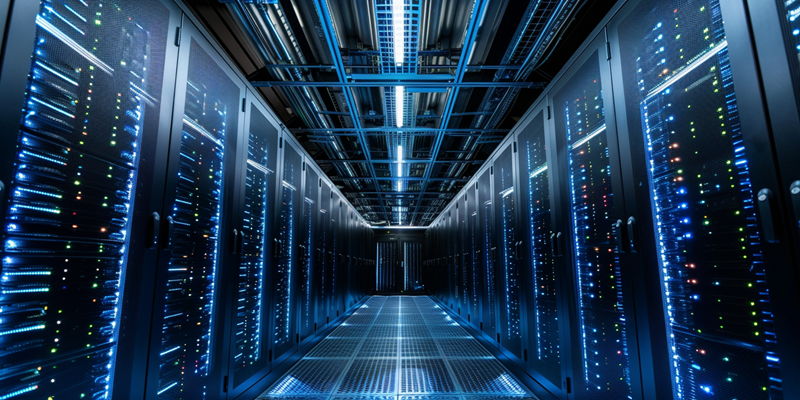In a significant step towards enhancing the sustainability of data centers, Hewlett Packard Enterprise (HPE) and Danfoss have initiated a promising collaboration. This partnership centers around the introduction of a new product called HPE IT Sustainability Services – Data Center Heat Recovery, an “off-the-shelf heat recovery module.” This innovative solution marries HPE’s scalable Modular Data Center (MDC) products with Danfoss’ advanced heat reuse technologies. The goal is to enable data center operators to reclaim waste heat and utilize it for renewable heating purposes, contributing significantly to energy efficiency and sustainability targets. The HPE IT Sustainability Services – Data Center Heat Recovery represents a paradigm shift in how data centers can manage energy consumption, turning what was previously waste into an asset that supports broader environmental objectives.
One of the standout features of HPE’s MDC units is their compact footprint combined with a high-density configuration. This design makes it easy to deploy these units across different environments with minimal infrastructure requirements. The MDC units employ direct liquid cooling and other cutting-edge technologies, potentially reducing overall energy consumption by an impressive 20% while achieving a Power Usage Effectiveness (PUE) of 1.14. These efficiency gains are further amplified by incorporating Danfoss solutions, including heat reuse modules and Turbocor oil-free compressors. The Turbocor compressors are particularly noteworthy, claiming to enhance cooling efficiency by up to 30%. The collaboration brings together two industry leaders, leveraging their respective strengths to create the next generation of data centers that are not only more energy-efficient but also more intelligible and practical to implement.
Revolutionizing Data Center Energy Use
HPE and Danfoss are collectively emphasizing the transformational potential of this strategic partnership. The overarching goal is to revolutionize the data center industry by turning waste heat into a valuable resource. With data centers consuming vast amounts of energy, the ability to recover and reuse waste heat addresses a critical pain point in energy management. HPE and Danfoss have pointed out that this cooperative effort utilizes existing technologies to forge new paths for sustainable data centers. According to the companies, the integration of HPE’s MDC units with Danfoss’ heat reuse modules could become a key driver in making data centers more energy-efficient and environmentally friendly, which is both a practical and achievable objective.
Danfoss is already a client of HPE, using the HPE GreenLake for SAP S/4HANA Cloud in its data centers. The current collaboration stands out because it incorporates heat reuse technology, drawing from successful implementations such as those in Google’s data centers. Earlier this year, Danfoss garnered attention for its work on Google’s facilities, adding credibility to the effectiveness of their heat management solutions. This trend of enhanced energy management practices is gaining traction, reflecting a broader industry consensus on the need for sustainable operations. The mutual expertise of HPE and Danfoss translates into actionable solutions that capture waste heat and repurpose it for renewable heating, marking a significant advancement in the drive towards achieving sustainability in IT infrastructures.
Aligning with Broader Sustainability Goals
Hewlett Packard Enterprise (HPE) and Danfoss are joining forces to promote sustainable data centers with their HPE IT Sustainability Services – Data Center Heat Recovery product. This innovative “off-the-shelf heat recovery module” combines HPE’s Modular Data Center (MDC) products with Danfoss’ advanced heat reuse technologies, allowing data center operators to reclaim and repurpose waste heat for renewable heating. This solution is a significant stride toward meeting energy efficiency and sustainability goals by transforming waste into a renewable asset that supports environmental objectives.
HPE’s MDC units stand out due to their compact yet high-density design, streamlining deployment across various environments with minimal infrastructure. These units utilize direct liquid cooling and advanced technologies, potentially cutting energy consumption by up to 20% and achieving a Power Usage Effectiveness (PUE) of 1.14. Incorporating Danfoss’ heat reuse modules and Turbocor oil-free compressors amplifies these efficiency gains. Notably, Turbocor compressors can increase cooling efficiency by up to 30%. This partnership between industry leaders leverages their strengths to develop next-generation data centers that are more energy-efficient, practical, and easy to implement.

